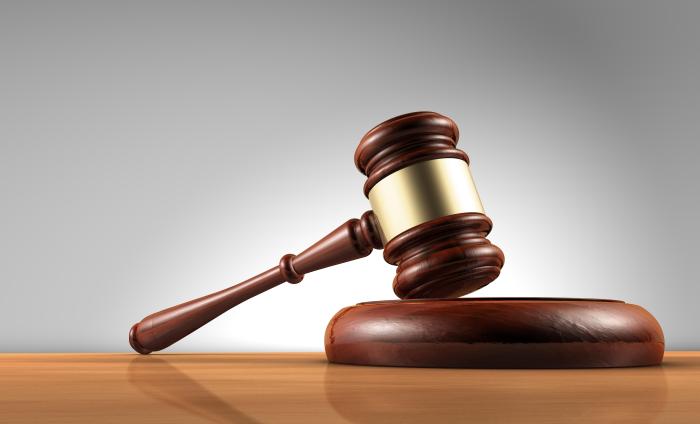
By Steve Zorn
On Monday, the National Horsemen’s Benevolent and Protective Association (HBPA) filed a lawsuit in federal court in Texas seeking to overturn the recently enacted Horseracing Integrity and Safety Act. The Act would establish a nationwide drug enforcement policy for racing, partially replacing the patchwork system of state-by-state regulation that, in the opinion of many racing folks, has permitted cheaters to avoid or delay the kinds of stiff penalties that would actually deter cheating.
Most discussion of the Act has focused on its similarity to the human anti-doping program of the US Anti-Doping Agency (USADA) for Olympic athletes. But in fact, the Act is modeled more closely on the regulatory structure in the stock market, where a private entity, the Financial Industry Regulatory Authority (FINRA) oversees the actions of stock brokers, dealers and advisors, under rules that it proposes and that are subject to approval by a federal agency (in that case, the Securities and Exchange Commission) and, ultimately, by the federal courts. In the case of racing, the Horseracing Integrity and Safety Act sets up a private entity, the Horseracing Integrity and Safety Authority, that has the power to propose rules for approval by the Federal Trade Commission and to establish enforcement procedures.
FINRA, the successor to the National Association of Securities Dealers, has been around since 2007 and has conducted hundreds, if not thousands of enforcement proceedings. Like the new Horseracing Integrity and Safety Authority, FINRA is a private corporation established under Delaware law, with a self-perpetuating Board of Directors. Many of FINRA’s actions have been tested in court, with only one court ever finding that FINRA had exceeded its authority. (In that case, a trial court held that Congress had not intended FINRA have the power to enforce the collection of disciplinary fines through judicial action. But that decision was overturned on appeal.) The courts have never found that the general delegation of rule-making and enforcement by Congress to FINRA, subject in that case to SEC approval, was unconstitutional.
Yet the HBPA lawsuit claims that the delegation of power to the Horseracing Integrity and Safety Authority, even though it is subject to FTC approval, is an unconstitutional delegation to a private entity. In its complaint, filed on HBPA’s behalf by the Liberty Justice Center, a right-wing legal think tank that spends most of its time suing labor unions, the HBPA cites a number of cases on the issue of whether Congress can delegate authority to a private entity and, if so, subject to what sorts of limits and what kind of supervision by government agencies. The problem with its argument is that virtually all the cases it cites are either very old. And I mean VERY old; they mostly predate the Supreme Court’s dramatic acceptance of government regulation in the 1930s! And, those that aren’t old miss the point, by referring to situations that are not in any way analogous to the Horseracing Integrity and Security Act. And then there are a few that actually say something totally different from the point that the HBPA cites them for.
The Supreme Court has on many occasions allowed Congress to delegate rule-making and enforcement activities to government agencies, subject only to the requirement that Congress set out in legislation the standards that the agency should meet, so that a court can determine whether the intent of Congress is being carried out; that’s the ruling in the most recent case on the issue, Mistretta v. U.S., in 1989. And those standards set by Congress don’t have to be very specific. For example, the Supreme Court in 1948 approved a law that delegated to the War Department the authority to recover “excess profits” from greedy defense contractors.
It is true that there are a few cases saying that Congress cannot delegate power to private entities, like FINRA or the new Horseracing Authority. For example, a Court of Appeals case in 2013 overturned a grant of authority to AMTRAK, a private corporation, to make rules for use of railway tracks, acting jointly with the Federal Railway Administration, a government entity. But that situation is different from that of FINRA or of the Horseracing Authority. They don’t act jointly with the agencies that supervise them; instead, the rules that they make won’t become effective until approved by, respectively, the SEC or the FTC. As for the other cases cited by the HBPA in its complaint, they all either date to 1936 or earlier and provide little guidance in the 21st century, or deal with very different fact situations.
Many of us in racing have issues with the new Act, which has been heavily promoted by the Jockey Club and similar organizations, like the National Thoroughbred Racing Association (NTRA) that purport to speak for the industry as a whole but are in practice dominated by a few wealthy owners and breeders, with little input from smaller owners, partnerships or syndicates, and their trainers, or from the people who actually bet on races and make the whole game possible. The NTRA today issued a statement criticizing the HBPA lawsuit. The new Act imposes substantial and yet-to-be-determined costs for drug testing and enforcement. Passing the costs on to owners and trainers will mean that even more of us will fail to cover our expenses with purse earnings. But, passing those costs on to bettors through increased takeout will make racing even less competitive with sports betting than it already is. And, aside from the question of cost, there are still many uncertainties about how the new Authority will actually function.
Still, trying to kill the Act by means of a lawsuit of the kind that the HBPA is spearheading may be wrongheaded. First, for all the reasons I’ve outlined above, it is very unlikely to succeed. And, even if the lawsuit did succeed, that would not automatically abolish the Act. More likely, it would just lead to an amended Act that made some cosmetic changes in the relationship between the new Authority and the Federal Trade Commission, but it would leave all the substantive provisions of the Act, including the intended ban on Lasix, in place.
The HBPA was founded 125 years ago, initially as a mutual-aid group to raise funds for burying dead horsemen and for providing help to impoverished families in the industry. In recent decades, it has become the principal spokesperson for opposition to just about any drug reform in racing. That position stands in contrast with a rival organization, the Thoroughbred Horsemen’s Association (THA), which represents owners and trainers in New York, the mid-Atlantic and Arlington Park. (Disclosure: I was a member of the Board of Directors of the NY Thoroughbred Horsemen’s Association, a THA affiliate, from 2002 to 2016.) The THA early on embraced the principle of uniform drug rules and has been a supporter of the new Act.
In light of the HPBA’s history of opposing effective drug regulation, the HBPA’s latest lawsuit should be seen for what it is, just another attempt to delay or push back effective drug enforcement in racing. Most knowledgeable legal observers would, I think, agree that the Horseracing Integrity and Safety Act is constitutional. But, who knows? There’s no guarantee that this lawsuit won’t find a friendly judge who will be prepared, at a minimum, to issue an injunction that will delay enforcement of the new drug policy while the case winds its ponderous way through the courts. In the end, the HPBA will most likely lose. But, as has happened so often in racing, this lawsuit is a self-inflicted wound that can only damage the perception of racing among the general public that, we hope, will continue to support us.



